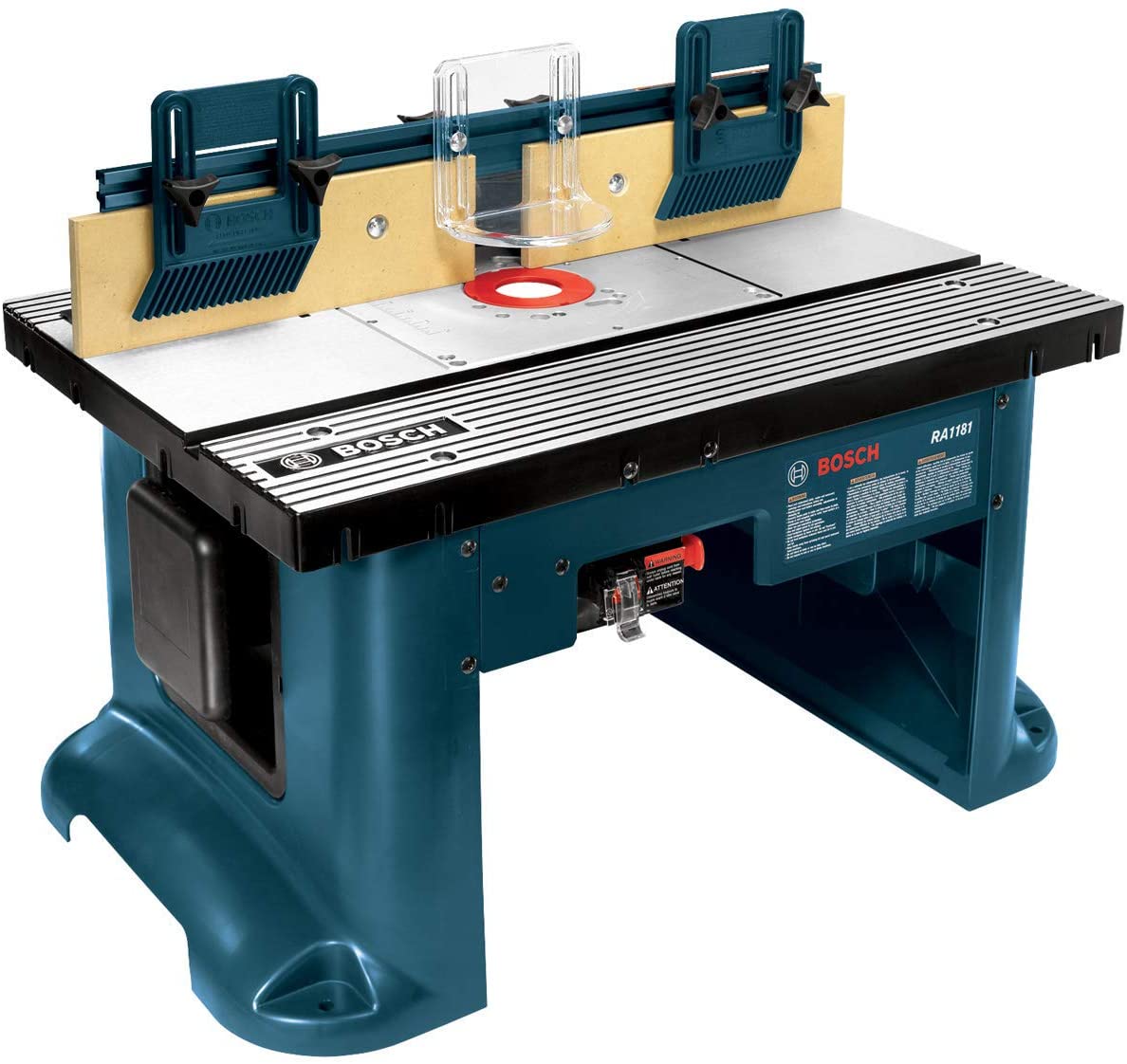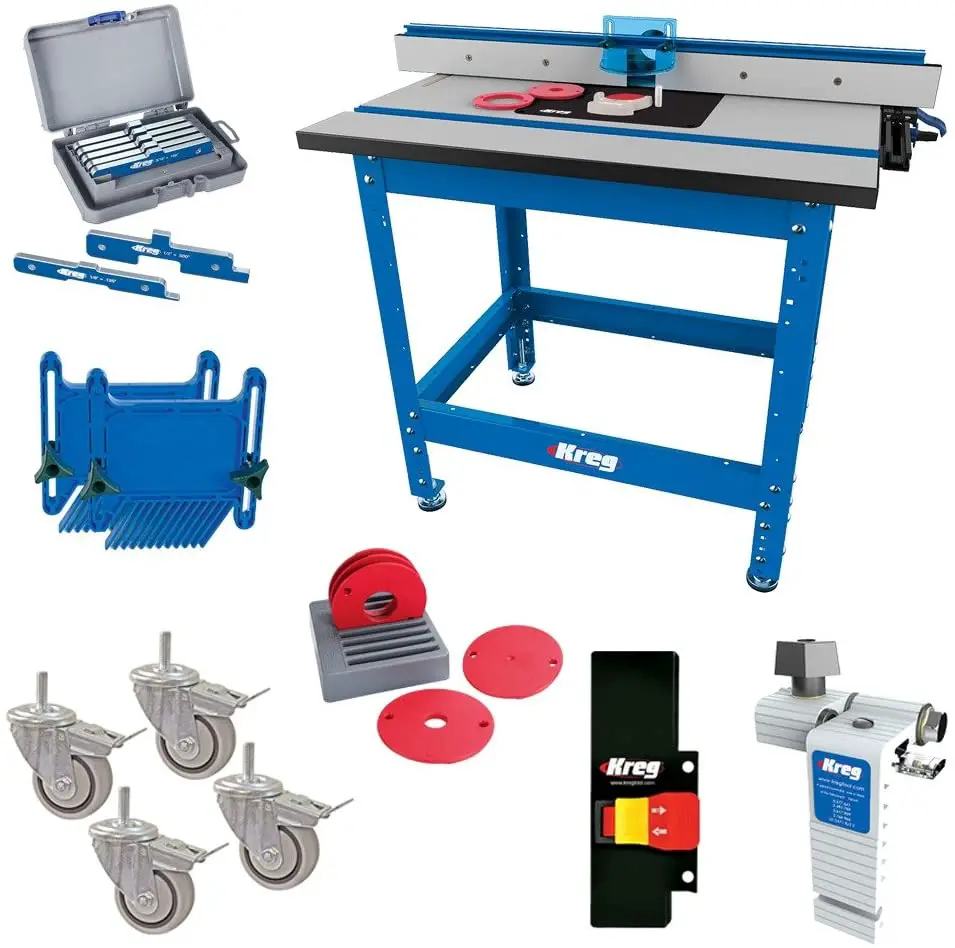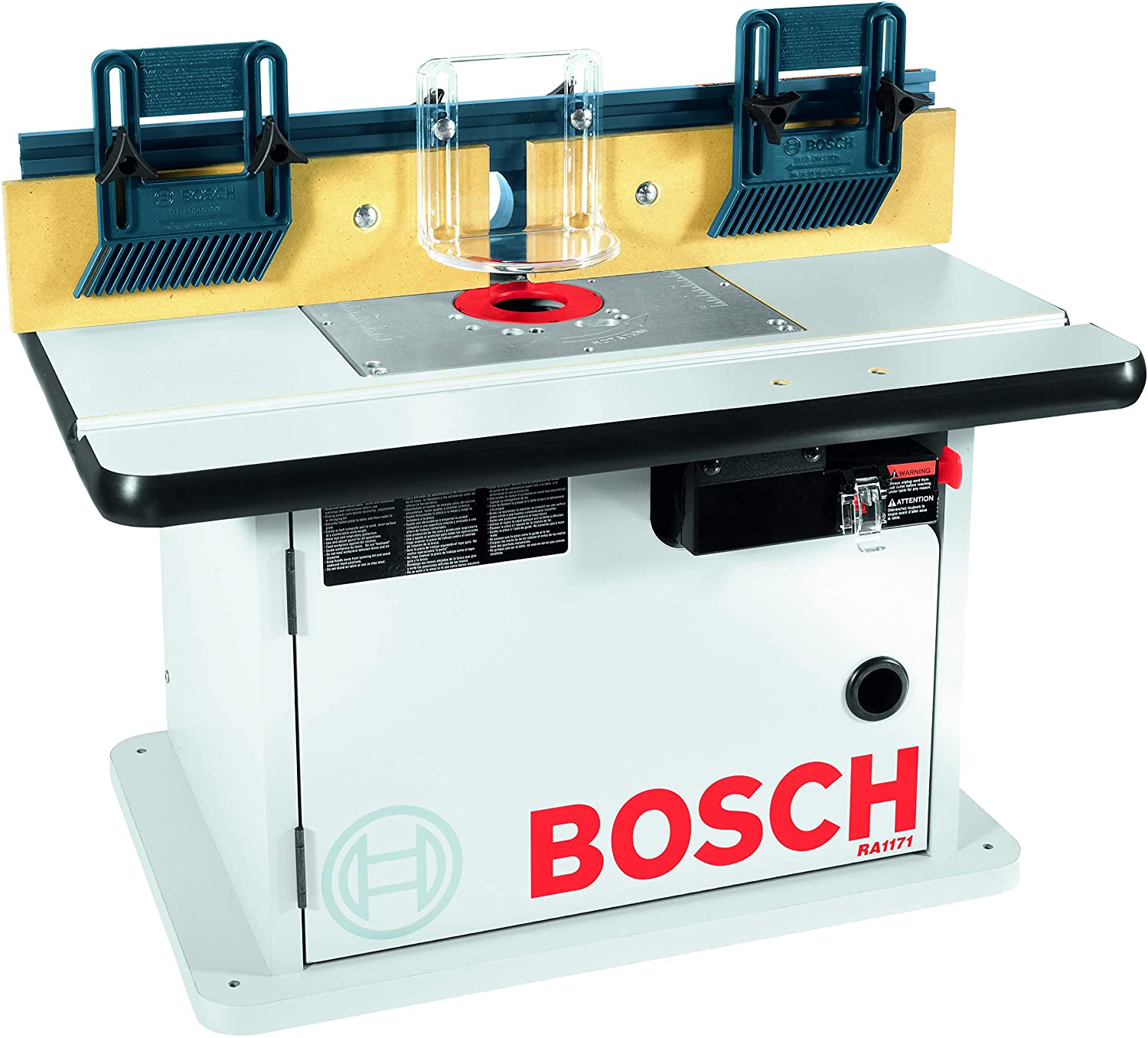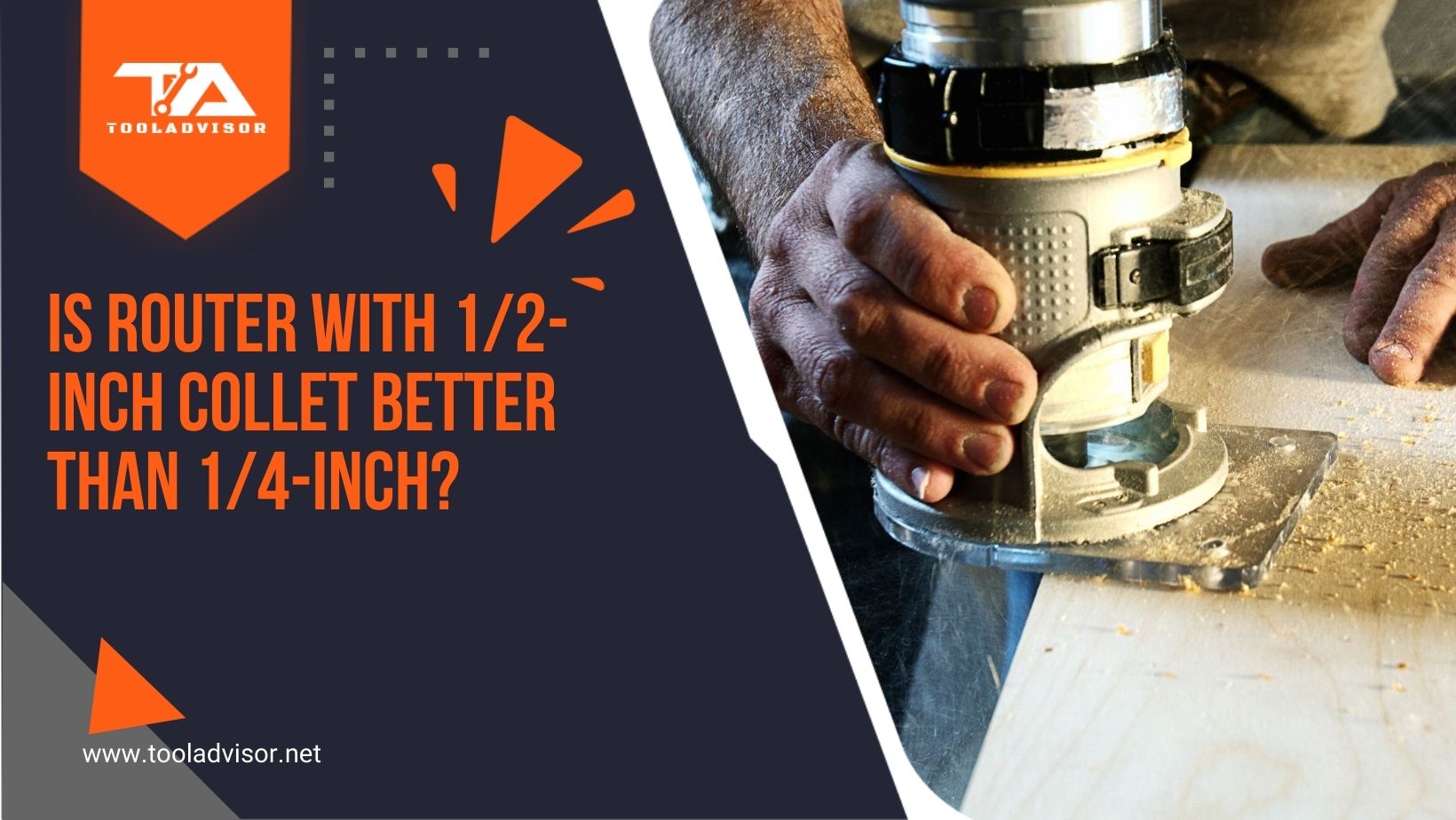Routers are extremely versatile tools, and many of the intricacies involved with router bits may be daunting. If you’ve ever purchased router bits, you’ve undoubtedly seen a wide range of shapes and sizes available. This is great because it allows for creating many routers with a single purchase. If you’re looking for router bits, the first thing you’ll notice is that they come in two sizes: 1/4-inch and 1/2-inch shanks.
The majority of bit types are available in both shank sizes, and most router kits include collets to fit both shank sizes. You may be wondering which is superior if you can utilize either size. The simple answer is: 1/2-inch is preferable. There is simply no alternative to cut with a 1/4-inch blade; in many situations, the shank size is irrelevant.
Table of Contents
Router Bit Shank
The shank is the sturdy, completely cylindrical portion of a router bit. It’s the part of the bit that goes into the router’s collet and is tightened with the collet nut at its base. The bit body, which houses the cutter or cutters that shape wood, is located at the bottom end of the shank.
Although some shanks are available in a range of sizes, most bits have either 1/4-inch or 1/2-inch shanks. Some tiny, narrow-bodied bits maybe only half an inch long. Most tools, however, come with both a quarter-inch and half-inch shank.
Higher Mass With Router With 1/2 Collet
Because router bits with 1/2-inch shanks weigh significantly more than those with a 1/4-inch shank (nearly four times as much), they are considerably more stable. The greater weight aids in the reduction of chatter or vibrations produced by the spinning bit’s fast speed. As you would expect, a cleaner cut is achieved
The larger the bit, the more heat it can disperse, and the less heat is transferred from the router’s motor to the bit. When routing, there’s a lot of heat build-up, which can be dangerous if not prevented.
Increased Grip
The larger diameter bits like 1/2-inch shank router expose more surface area for the collet to grip, reducing slipping in the collet. Slipping isn’t a huge problem if you tighten the collet firmly, but having better control may be a big help when working with large items or tough chores.
Less Deflection
A portable plunge router typically has more vital disc forces and larger gearbox forces than a hand-held power drill. In addition to the centrifugal forces acting on a spinning bit, there are also considerable sideways torques generated by the user pushing the bit into the wood. The bit may deflect or flex as a result of these lateral torques.
A 1/2-inch shank deflects less than a 1/4-inch shank. When employing a long bit, which is subject to larger deflection, or when using a piloted bit, which has a bearing pushed against the wood throughout the cut, this can be critical.
How Do 1/4-Inch Bits Help You?
1/2-inch shank bits are not always preferable, and in some instances, 1/2-inch shanks aren’t even accessible. As a result, most woodworkers who use routers end up with various bits with both 1/2-inch and 1/4-inch shanks.
Another benefit of 1/4-inch bits is that they are less expensive. You certainly get what you pay for with router bits, but an inexpensive 1/4-inch bit may be the best option if you need a bit for a one-time project and would not use it much otherwise. Another potential advantage of 1/4-inch bits. Another potential benefit of 1/4-inch bits is their greater availability, as some shops cater to a wider selection of 1/4-inch bits than 1/2-inch.
Some of The Best Router Tables
| IMAGE | PRODUCT | FEATURES | PRICE |
|---|---|---|---|
 | Bosch Benchtop Router Table RA1181 | • Benchtop router table design • Rigid aluminum mounting plate • Extra tall aluminum fence | |
 | SKIL RAS900 Router Table | • Accessory storage containers • 2 feather-boards • Bit height gauge | |
 | Kreg PRS1045 (KRS1035, PRS1025, PRS1015) Router Table with PRS3090 Caster | • The KREG Complete Router Table System • Includes Factory Warranty • High-Performance Table Top | |
 | Bosch Cabinet Style Router Table RA1171 | • Bosch RA1171 features a rigid aluminum router mounting plate • Easy to use feather boards attach to fence and router table • With a cabinet style design |
Final Words
Generally, router bits with 1/2-inch shanks are more expensive than those with a 1/4-inch shank, but they offer better performance in most cases. If you can use a 1/2-inch bit, it is the best choice for most routing applications. When using a 1/4-inch bit, keep in mind its advantages and disadvantages, be safe and use it effectively.
